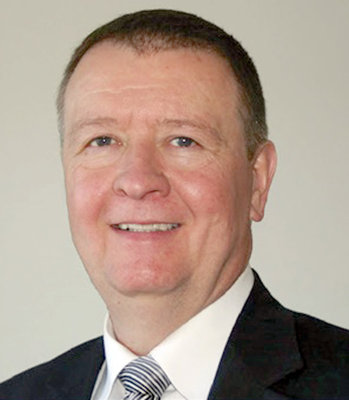Becoming All Things, Spoiling the Egyptians, and Occupying Culture till Christ Comes
As the target readership of PR is primarily Pentecostal and Charismatic church leaders, pastors, and scholars, I wish specifically to discuss postmodernism in that context. Jackie Johns will assist us here.33 Johns, a staunch Wesleyan theologian, is a seminary professor and administrator as well as a church planter and pastor. He embodies in his person much of the PR audience. With keen prescience, Johns tackled the interrelatedness of Pentecostalism and postmodernism nearly a decade and a half ago. In the first half of his essay, Johns constructs a model for understanding the concepts of worldview and postmodernism and offers a critique of one leading theory (systemic science) on the emergence of postmodernism.34 For our purposes, we will focus on the second part, a direct examination of dominant characteristics of the Pentecostal worldview itself in correlation with postmodernism.

Jackie David Johns
Johns notes that, “Pentecostalism was born outside of the dominant theological visions of the Christian world” at the same time “postmodernism” (a later label) was birthing alternative visions of scientific reality. This raises “questions concerning interdependence.” Harvey Cox has argued that, “Pentecostalism is a potential bridge” with postmodernism, and may serve a special role of leadership during this era of human history in that regard.35 Johns thinks Pentecostalism’s lack of dependence on modern science and evident dependence on the nineteenth century Holiness Movement does suggest it might even be “more of an impetus than a consequence” of the emerging worldview.36 For me, if this is so, and it most likely is, then their interrelatedness is much more dynamic or perhaps dialectical than often thought. There may be a kind of give and take complex reciprocity between Pentecostalism and postmodernism in which both form and are formed by the other.
Johns identifies and describes “a core image within the Pentecostal worldview and extrapolates from it specific visions of reality”.37 Significantly, he gives preeminence to the importance of “affective experience of God which generates an apocalyptic horizon for reading reality.” Essentially, Pentecost restores the primitive eschatological vision fusing the space-time continuum of past (biblical), present, and future (eschaton) into a unified reality. Pentecostalism’s experiential nature is a “form of resistance to modernism”; however, Pentecostals have also employed a “decidedly modern worldview” that makes for humanity fuller, richer, that is, for multidimensionality humanity.38 I note that here the complex character of Pentecostalism confronts us. Oversimplification would be an error. Pentecost cannot be (correctly) reduced to any cultural category, modern, postmodern, or otherwise. Its fecundity and diversity defies facile classification.
Johns enumerates several dominant characteristics of a Pentecostal worldview. Specifically, a Pentecostal worldview is God-centered, holistic, transrational, apocalyptic, and primitivist. Furthermore, scripture holds a special place, different from Evangelicals and Fundamentalists in that “the Bible is a living book in which the Holy Spirit is always active.” Moreover, Pentecostals are more active than reflective, resistant to “bureaucratic authority”, have a paradoxical view of power that stresses personal empowerment simultaneous with surrender to God, and a strong sense of separation from the world.39 For me, that last one may signal a healthy suspicion toward the world’s ideas, words, and deeds—including postmodernism.
Johns now moves toward a Pentecostal paradigm, which he roots in the knowledge of God. Pentecostal epistemology bases itself squarely on “personal revelation and response” undergirded by a sense of knowledge as experiential, or, from the Hebrew, yada, indicative of a journey or pilgrimage (being in time).40 A Pentecostal paradigm sees the total transformation of the believer as an advance indicator of eventual total cosmic transformation. In addition to propositional truth, Pentecostals are concerned with affective reality. This is an integrative commitment to orthodoxy, orthopraxy, and orthopathy, and includes the integrative and affective nature of Pentecostal sanctification.41 Ultimately, the “paradigm of Pentecostalism is Pentecost.” In short, “The Pentecost event embodies the values, beliefs, and affections of the movement.” Significant for the present study, Johns notes that the Pentecostal paradigm is capable of incorporating the postmodern paradigm; however, the reverse is not true.42 To me, this suggests an all-surpassing transcendence of the Holy Spirit. The Spirit is able to confront, conform, and then commission cultural resources according to the Spirit’s own good pleasure and purpose. Yet the Spirit, and the Spirit’s power and truth, is not reducible to a particular cultural worldview.
Category: Ministry, Winter 2009


